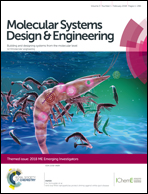Polarization energy of two charged dielectric spheres in close contact
Abstract
Evaluating the interaction energy between charged dielectric spheres in close contact is difficult because interfacial charge polarization becomes increasingly stronger as separation decreases. The limit of high dielectric permittivity is amenable to theoretical treatment because the particles become equipotential upon close contact. For particles with low permittivity, the constitutive equation for the induced surface charges demanded by the boundary conditions is derived in this work, based on which the contact energy of symmetric cases is evaluated. The known result for conducting spheres is recovered as a limiting case.

- This article is part of the themed collection: MSDE Emerging Investigators 2018


 Please wait while we load your content...
Please wait while we load your content...